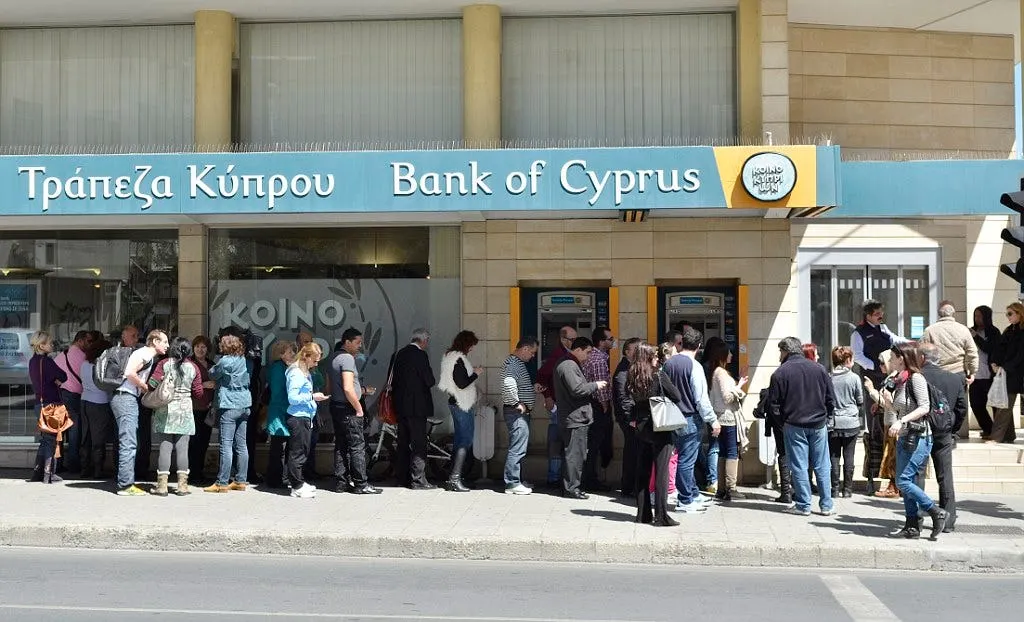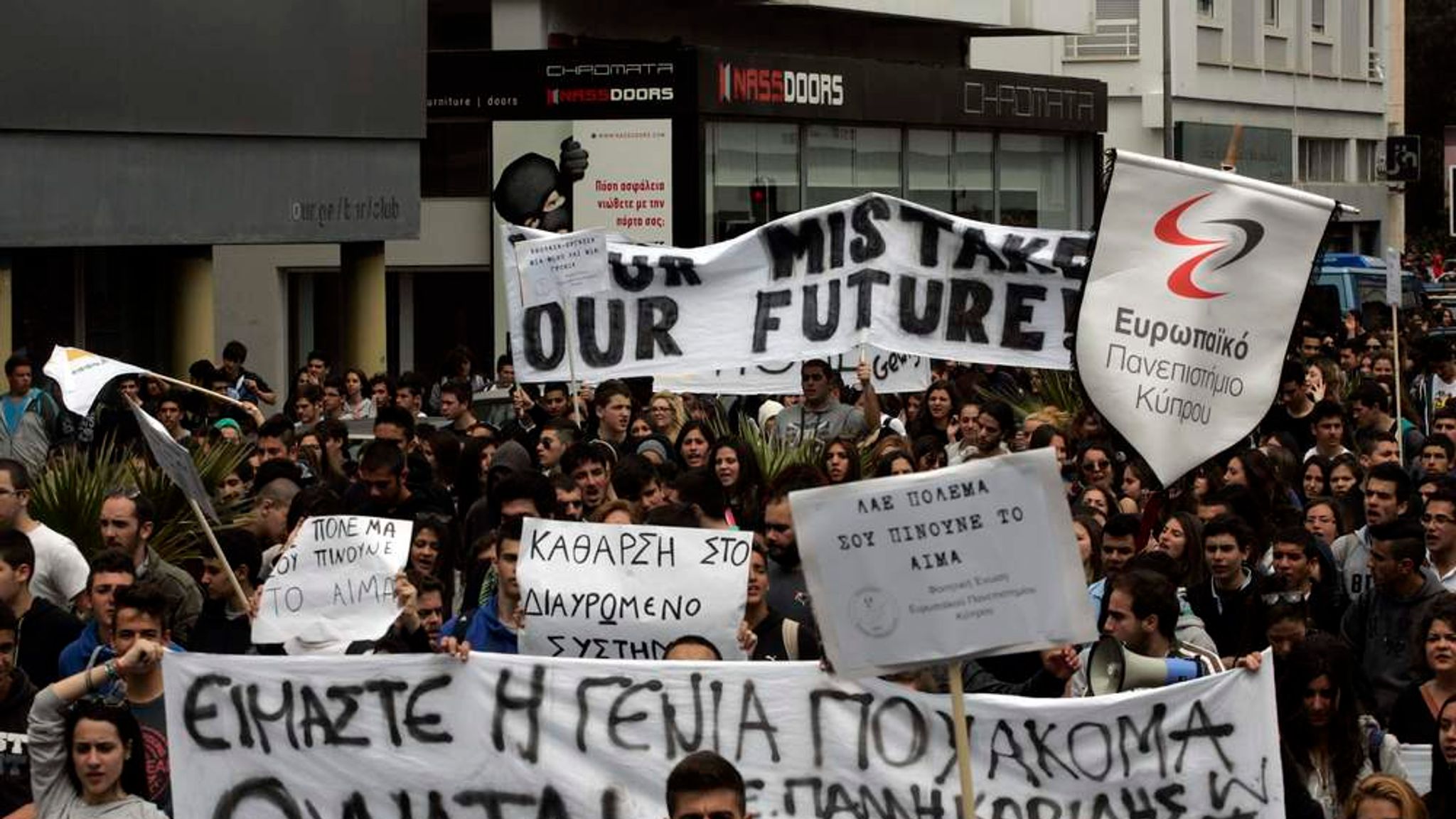BANK ROBBERY
March 28, 2013
1BTC:$86.180000
- Artist
- ilan katin
- Fact Date
- March 28, 2013
- Fact #
- 065
- Printing Specifications
- Paper / Stock
- Xper paper
- Page Size
- 70cm x 35cm
From beyond the digital grave, Satoshi continued to be vindicated. In March 2013, Cyprus dipped into its citizens’ savings after the nation’s bonds were downgraded to junk status. As Bitcoin’s founder had warned, “The central bank must be trusted not to debase the currency, but the history of fiat currencies is full of breaches of that trust.”
Guest Written by Raoul Pal
2013 was an extraordinary time to be living in Europe. From my home in Spain, I witnessed most of the major Southern European governments lose control of their bond markets and banks across the region were failing en masse.
Every day a new bank would go bust as the ramifications from the Greek default spread like wildfire. The banks had lent too much money to the housing market and the governments had borrowed too much money and were on the hook for the banks. No one could pay the debts that were being called as all forms of collateral were collapsing in value. It felt hopeless.
Things were in fact so bad that I bought a generator and tinned food just in case we lost all the banks in Spain. It was getting incredibly close to the edge.
It felt eerily similar to Argentina’s “El Corralito” crisis in 2002 when the country’s economy was wiped out in a massive collapse of the financial system, forcing many people to exist on barter and gold jewellery to make payments for food. As a macro investor, I had always studied these collapses in depth but here I was living it in real time... and in Europe, not in an emerging market.
For me, the most shocking collapse was that of the tiny island of Cyprus, which essentially relived the total wipeout we had seen in Argentina. However, the most concerning thing by far was that for the first time, banks weren’t bailed out – they were bailed-in.

What this meant in reality is that all deposits over 100,000 EUR were converted to equity in the collapsing bank to shore up the capital, wiping out anyone with larger savings and many businesses. This crossed a very important line where, for the first time, it was made very clear that you don’t own your money. The bank does, and it can do with it what it pleases.
I’d heard about Bitcoin back in 2011, but it shot to the front of my mind when the Cyprus bank bail-in occurred. As the situation got worse in early 2013, the price of bitcoin began to rise as money fled the Cypriot banks and by the time of the collapse in March 2013, Bitcoin had risen 1630% as people fled the existing financial system and avoided banks entirely.
This was the Bitcoin lightbulb moment for me. It offered an escape entirely from the indebted system where you own nothing but a claim. Bitcoin was a new decentralised system, free of banks and governments, where you self-custodied your money and it was liquid, instantly transferable, and – most importantly – immutable.
As the crisis worsened in early 2013, I began to frantically research Bitcoin, helped by Bitcoin OGs Emil Wood and Chad Cascarilla, who had founded ItBit, the Bitcoin exchange (now part of Paxos). I ended up writing a macro strategy piece on how to value Bitcoin and also bought BTC for the first time. The article ended up being a catalyst for many macro investors to discover Bitcoin too, and the world changed.
The Cyprus crisis was a key moment in Bitcoin's history; its first true test of its ultimate use case. It passed with flying colours.

- Artist
- BTC On this day
- March 28, 2013
- Market Cap
- $944,485,401
- Block Number
- 226,004
- Hash Rate
- 47.53 TH/s
- Price Change (1M)
177%
- Price Change (3M)
542%
- Price Change (1Y)
1699%
